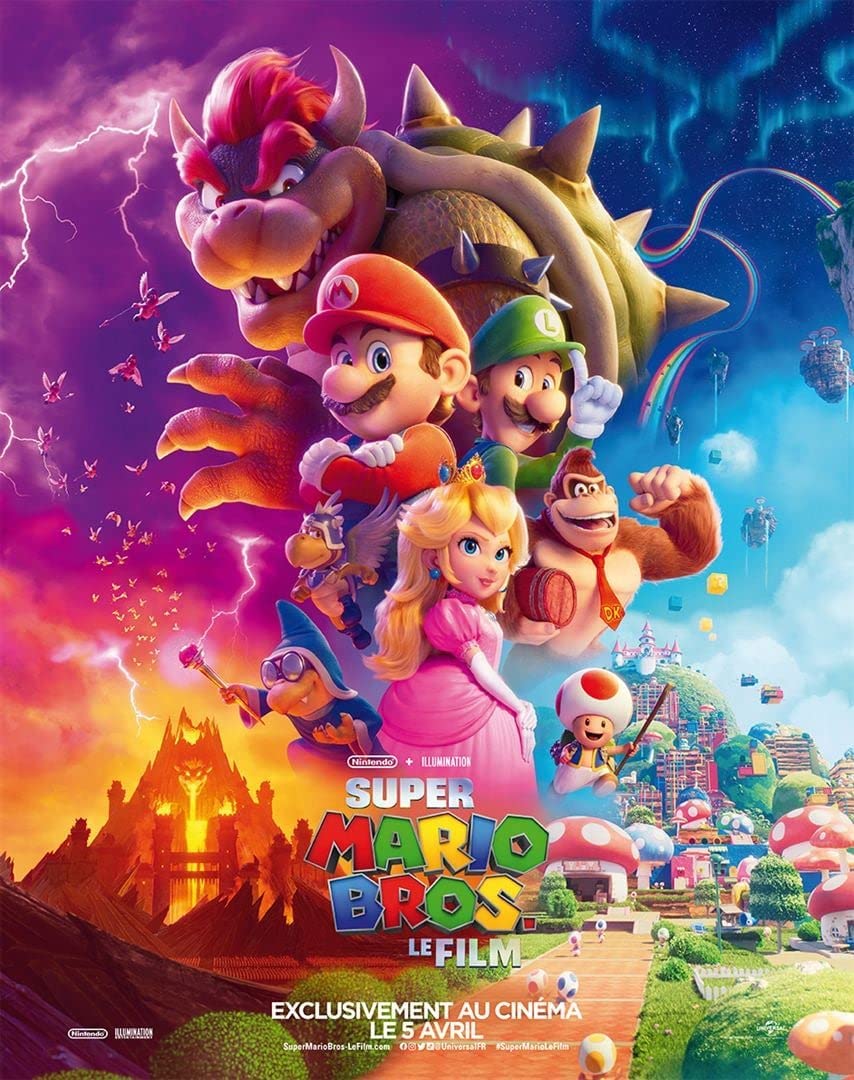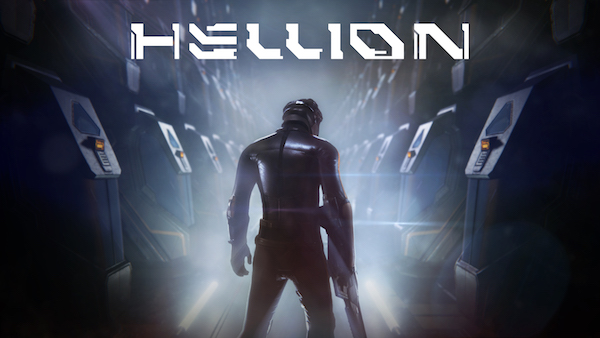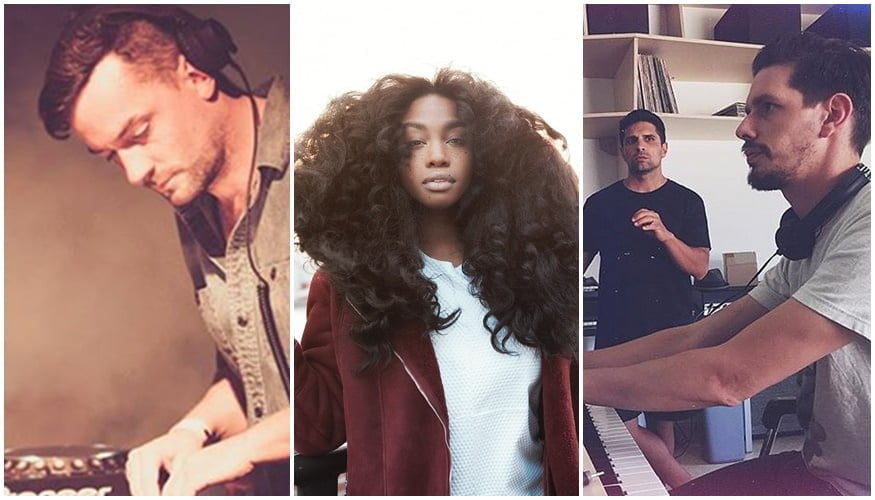Mathieu Turi is a young French director. Originally from Cannes, he released his first feature film that mixes post-apocalyptic horror film and romantic drama.After being released all over the world, Hostile will be released on September 26 after months of waiting and positive feedback from many festivals around the world (including Neuchâtel). Last March, he gave us a fascinating interview. Focus!
Just-Focus: Can you present your background?
Mathieu Turi: I was born in Cannes and lived there until I was 18 when I made a few short films in my area. Then I went to Paris and I went to a school, ESRA, for which I had the opportunity to make a short film at the end of my studies, on film. It was a pretty strange killer story. At the time, I told myself that I had to eat, so I might as well enjoy it and do something that would bring me closer to the environment. The first film I worked on was G.I. Joe followed by Inglorious Basterds. Working on a Tarantino is still pretty cool. I was an assistant director. So I was there to open doors for people to pass through, etc. But it allowed me to observe Tarantino, and it's very instructive to see people like him at work. In parallel with the 2 short films I made I worked on about twenty feature films, mostly American, as an assistant. It allowed me to make films like Clint Eastwood, Woody Allen or Lucy. You realize that everything happens very quickly and that even as a simple assistant you have a lot of things to manage. For example, I had to direct the extras on set. On a small scale, you do directing. This allows you to learn.
Just-Focus: How long have you been working on Hostile?
So I started by writing the script on the advice of Xavier Gens whom I met because our mothers know each other! He first gave me advice on the courts, then he advised me to move on. So he asked me to pitch my ideas to him, hooked on Hostile and advised me to write it. In 2012, I finished the first presentable version, which I reworked until 2015, when I met my producers. A year later, we started shooting.

Where does your desire to make this film come from?
It's been going back a while. I started by making two short films. The first was a post-apo short, made for 3,000 bullets. It was Son of Chaos that I did with friends. It had some success and allowed me to go around the world of festivals. It opened a lot of doors for me, but to be able to do a long one I was told that I had to show that I knew how to direct actors. Because the characters in Son of Chaos have gas masks, they use pipes to eat… The second short film was about an American man and a French woman, not mastering each other's language at all, who find themselves locked in an elevator. It was really pure acting direction. Then finally Hostile is a bit the meeting between these two universes. The main artistic idea comes from there.
What were the difficulties with this film?
Already, producing a first film is complicated. A first genre film is even more complicated. And making a first genre film shot in English, in France, it's even more complicated. But afterwards, there was a desire to hang on until the end. When I met my producers, we were in a period of trough between French Frayeurs and Grave. We realized that we had 2 options: where we tried to make the film in the traditional French system, or to make it in English, it also allowed us to sell it worldwide. But today, you have to know that the video market no longer works, whereas for French genre cinema it was essential. Alexandre Aja's Haute-Tensions was the best-selling French film abroad for years! No one says it because it would be bad kind in the world of French cinema. Genre cinema abroad sold much better than auteur cinema! But with the collapse of video, even if Netflix & co raise the bar, it is more complicated to say that it will be a success abroad. Either we make a mega box in French and sell it abroad, or we make it in English and sell it everywhere.

Hostile is a film that mixes two genres. First of all, the post-apocalyptic horror movie but also the romantic drama. Why this choice?
The idea was to make a film composed half of flashbacks. The idea was that it would shock and that we do not expect it. The first 15-20 minutes, they take place in the post-apo universe before returning to the romantic part. Even if it means risking that some do not adhere to the concept. I wanted to go to the end of the concept and tell what I wanted to tell.
What are the films or other sources of inspiration to make your film?
So, the main sources of inspiration for the film are not other films! Rather, it is the book I am a legend, which for me is the ultimate masterpiece. And the video game The Last of Us, which gave me one of those slaps… It is for me the Citizen Kane of video games, a work in its own right! I had fun slipping in a few nods to the game, including one that is almost impossible to find, so I wish someone could do it one day. It is the direct inspirations that are linked to the story. For I am a legend there have already been some adaptations but none that is a literal adaptation of the book. For The Last of Us, the film is in development hell in the United States, and it is not known if it will really happen. If it is done, good luck, because we will have to assume the game as it is.
Maybe one day it will be you who will direct the film!
I am available to do it!

A few words about the casting?
For Britanny Asthworth, we chose her to have someone we don't really know and also to be able to adapt to the budget. It was an acquaintance of Xavier Gens who had recommended it to me, and he was right, I immediately saw the character in her. Grégory Fitoussi comes more from production. Personally, I knew him from seeing him in World War Z. He actually starred in the first film I worked for; GI. Joe ! It was the production that knew him very well and recommended it to me. As for Javier Botet, I had written the script but I didn't know anyone, except Gens. I was coming out of Mama, in which he played the monster. When I left the film, I told myself that I wanted to make a film where we would see everything in the image, at least for the creature. Javier's work on the body was quite interesting to me and I wanted to use that. So I wrote to him to offer him the role, stating that I was a young director who was making his first feature, and that I really wanted him to play the role. He asked me to send him the script, and he told me then that no matter how long it took, he would play in the film, no matter what happened! It was complicated because he chained Insidious 2, That and was going to shoot Alien Covenant! However, he took the time to come to Morocco to make the film and then leave. He kept his word to the end!
Hostile was your first feature film. What did you learn from this experience and what will you avoid repeating in the future?
That's a good question. We had a lot of moments of doubt. For example, on a day when we weren't shooting, there was a storm that completely devastated the set and everyone had to pitch in to rebuild everything. But you can't take things away from this experience. After that, I was free to do what I wanted while having a reduced budget, which involves a lot of things. But at the same time, I was able to shoot my first film on three continents: in Morocco, France and New York. There have certainly been artistic mistakes, but practical mistakes, nothing that can happen to another shoot. Personally, I would do the same thing.

Knowing that a shoot is always exhausting, how did you live this experience and how do you feel now?
You have to know that when you make a first feature and you have a reduced budget, you are already very happy to be able to shoot! Because, basically, the film was supposed to be shot between December 2015 and January 2016 but in November, we lost one of our investors and so we had to cancel the shooting. Which is a real blow when you're supposed to start your career. But finally, after the 2016 Cannes Film Festival, everything went very quickly. In these situations, you lose pounds and you panic because you are about to launch your career, but since you are nobody, you are afraid that you will never be able to do it. Finally, after 4-5 months of depression everything started again. So we must not let go and hold on, even if we have to start from scratch. I think I was not ready to keep this rhythm because we shot in New York for a few days, then we had to shoot 2 days after shooting there, start shooting in Paris for 4 days, and since then we shot everything almost without a break in Morocco including ten nights of shooting. At the same time, when you see the sun setting and you wait for it to have the light, with a hundred people behind, you tell yourself that for a first film it's really cool after spending years writing it alone in your piaule.
You have already directed a post-apocalyptic short film, Son of Chaos, which is the genre of Hostile, what is your relationship with this genre?
When you do post-apolog, it's usually because you don't have wheat at first. You're not going to do Star Wars alone in your room or in your piaule! The choice of this kind is made in such a way that defects become qualities. The fact that you don't have money becomes a quality if you find the right sets. So there is the possibility of having a film that slams visually with few means. After, there was an artistic desire that came in particular from I am a legend, Mad Max, etc. The ultimate reference for Hostile was Mad Max, especially for patched cars. George Miller is 70 years old, he comes back with Fury Road and slaps everyone and it's still Mad Max. For the short film (Son of Chaos available on YouTube), we had 3,000 budget balls, I did everything myself: I found the costumes, I aged them myself… I even did a stunt since the guy who was supposed to do it dropped me at the last moment. You had to jump into a hole and no one wanted to do it.

Recently, we have seen several French genre films, with films like Grave or independent SF films like Le Grand Tout or Virtual Revolution. In your opinion, is it more of a fad, or is it a long-term movement?
There is no real fashion effect when we talk about films, it is above all a will of the producers. Apart from The Pact of the Wolves, we don't really have a successful genre film, apart from the first film of the French Frayeurs, Promenons-nous dans les bois which was a hit (800,000 admissions). What is happening today is that all these films, Grave, Revenge, Virtual Revolution, are produced differently. There will be films that are made half in the system, like Grave which is a real success in relation to its number of copies, and others entirely self-financed or even self-distributed like Virtual Revolution. Others, like Hostile, which are produced outside the French system, but are part of the global production system, and which are shot in English. The people who make these films are about the same age, and are not from the same background as the generation of French Frayeurs. These were people who were fed by Mad Movies, but who had nothing after that. So they wanted to make their films and make the system fart by making extremely violent films. This has created careers with people who still continue to work, such as Pascal Laugier or Xavier Gens. Whereas, in my opinion, for our generation we do not have this rage against the system, since we know that the system does not want us anyway. The whole production chain of a film does not work for us. We know very well that if we wanted to make money in France and have films that will bring together ten million people, we would be making comedy. That's not to say that comedy is bad, but our roots are genre, or the cinema of codes. We don't make films so that they are seen by everyone, but simply seen. The first place where Hostile was released is in the Middle East, where they don't care if the film is of the genre, it was released without complex alongside films like Black Panther or Tomb Raider. Without comparing to them, for exhibitors in the Middle East, this film remains cinema, so it can be exploited. And it's very moving to know that on the other side of the planet, there will be people who don't care about the difficulties we had to make this film, who don't know me at all but who still go to see this film. The desire to tell stories is similar to the desire to discover new things.

This group of young filmmakers, who made first films, very inspired by American cinema, is reminiscent of the New Wave, but whose legacy has been perverted. Any opinion on this comparison?
It's hard to compare ourselves to the revolution that was the New Wave, which were filmmakers who were fed up with the cinema of the time, that of sons to daddy, who decided to take their camera and go film in the street. Like it or not, the New Wave was a real revolution that inspired American cinema, causing the creation of the masterpieces of Hollywood cinema of the 1970s. Now, what we do is different. We try to make films that have a foot in the system, in order to have the means to make them. I think the revolution will happen in a short time thanks to platforms and the Internet. In my opinion, we will have to wait another generation to be able to witness a real revolution. As for us, we already make our films, which is huge. But I don't think we're going to change much. This has already been the case with films like The Pact of the Wolves, although to say that The Pact of the Wolves has changed nothing is not true. There have indeed been a number of large genre films, initiated by large producers, which have seen the light of day, but have not been very successful. The Pact of the Wolves is a Cameron story, a huge film, with a very long shoot that in the end meets a real success. It's complicated to be successful with genre, because this cinema requires budget, but we are asked to make boxes with very few budgets. We are like snipers from the top of their buildings who must reach a target 1 km from our position! It's normal for a producer to want to produce mostly comedy, because, even if most comedies fail, the one that works is a hit. If there was a real constant production of genre films, it would allow to have a dynamic that could hatch a lot of things.
We heard about an encounter with a famous character. Can you tell us about it?
We have a little anecdote that I often tell. We had a godfather who stretched out on the cradle of the film! We were in New York, scouting, and with the team we started looking for lookalikes. And at one point, one of the producers thinks he has found a Steven Spielberg lookalike! Except it was really him. So we took our courage into our own hands, and we went to talk to him. We start talking with him, we annoy him a little until he asks us what we are doing here, since he has heard us speak French. There, we explain to him that we are making a film and he started asking us a lot of questions about it, he congratulated us, etc. He also told us about Scorsese who had to fly to the cinematheque. We talked with him, about 7 to 8 minutes. Then at the end, he left, and wished me "good luck with your film" in French, with a very pronounced accent. A real kid's dream.
 Thank you very much! Interview by Hugo Turlan and Théodore Vuillequez
Thank you very much! Interview by Hugo Turlan and Théodore Vuillequez







































